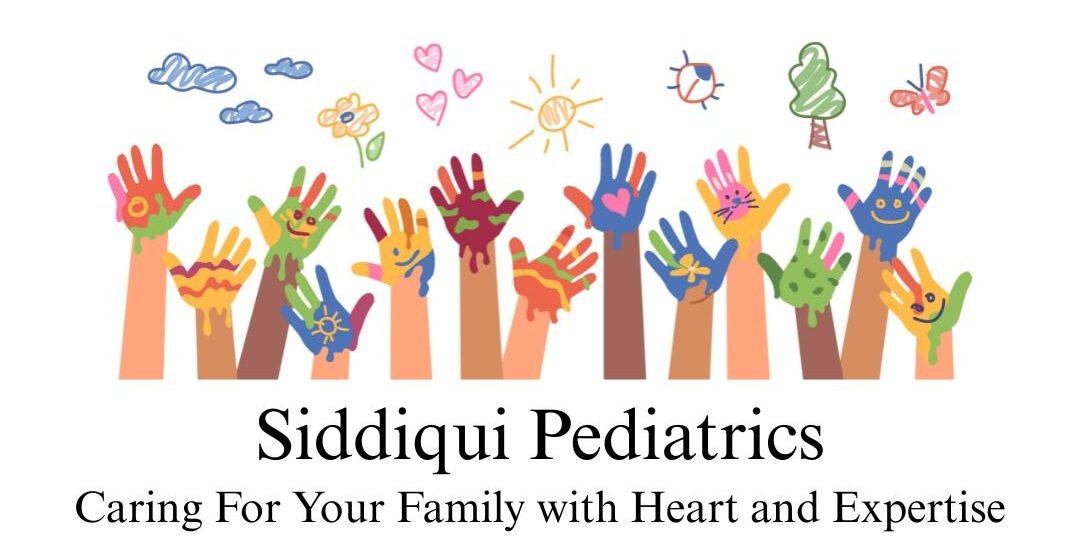Welcoming a newborn into your family is one of the most joyous occasions in life. However, along with the excitement, it also brings a host of new responsibilities, decisions, and questions. Ensuring your baby’s health and well-being during the crucial early stages of life is paramount. Fortunately, with the right guidance and expert support, you can provide your newborn with the best start in life.
As a parent, the overwhelming abundance of advice can sometimes make it difficult to know where to start. That’s why partnering with a skilled pediatrician can make a significant difference. Pediatricians are trained not only to monitor your baby’s growth and development but also to guide you in creating the best environment for your newborn’s well-being.
In this comprehensive guide, we will take you through essential steps and key practices for ensuring your newborn’s health and well-being. From routine health checkups to proper nutrition and sleep, we’ll cover everything you need to know for the first few months and beyond.

1. Regular Health Checkups: A Crucial Step for Your Baby’s Growth
Routine checkups with a pediatrician are one of the most important ways to ensure that your newborn is developing properly. These visits allow your pediatrician to monitor your baby’s physical and developmental milestones. Regular appointments can help catch potential health issues early and address concerns before they become more serious.
What Happens During a Newborn Checkup?
During your newborn’s first few visits, your pediatrician will focus on several key areas:
-
Growth monitoring: Your baby’s weight, height, and head circumference will be measured to ensure they are growing at a healthy rate.
-
Physical exam: The doctor will perform a physical exam to check for any signs of health concerns, including heart murmurs, breathing issues, and skin conditions.
-
Developmental milestones: The pediatrician will assess your baby’s ability to move, react to stimuli, and make eye contact, which are indicators of early developmental progress.
-
Vaccinations: Vaccinations are critical during the first few months. Your pediatrician will ensure that your newborn receives timely vaccinations to protect them from serious illnesses.
By visiting your pediatrician regularly, you can feel confident that your baby is on the right track in terms of health, development, and well-being. If you’re looking for more information on preventive care and how it can impact lifelong health, be sure to check out this detailed article on pediatric preventive care.
2. Feeding Your Newborn: The Foundation of Health
What your newborn eats in the first few months plays a crucial role in their growth and development. Whether you choose breastfeeding or formula feeding, ensuring that your baby is properly nourished is essential.
Breastfeeding vs. Formula Feeding: What’s Best for Your Baby?
Breastfeeding provides numerous health benefits for your baby, including:
-
Optimal nutrition: Breast milk contains all the nutrients your baby needs for the first six months of life.
-
Immunity support: Breast milk is rich in antibodies that help protect your baby from infections.
-
Bonding: Breastfeeding offers emotional bonding and helps establish a connection between mother and child.
However, formula feeding can also be a good choice, especially for mothers who are unable to breastfeed or choose not to. Formula provides balanced nutrition for babies and is a suitable alternative when breast milk isn’t an option.
The decision between breastfeeding and formula feeding is a personal one, and either choice can be the right one depending on your circumstances. Be sure to consult with your pediatrician to ensure that your baby is getting the right amount of nutrients for healthy growth and development.
3. Ensuring Safe Sleep Habits for Your Newborn
Sleep is another critical aspect of your newborn’s health and well-being. Babies require a lot of sleep, typically between 14 to 17 hours per day, and this sleep is essential for their physical and cognitive development.
Safe Sleep Practices for Your Newborn

The American Academy of Pediatrics (AAP) recommends several safe sleep practices to reduce the risk of sudden infant death syndrome (SIDS):
-
Always place your baby on their back to sleep: This reduces the risk of suffocation and is associated with a lower risk of SIDS.
-
Use a firm mattress: A soft mattress can pose a suffocation risk. Make sure your baby sleeps on a firm mattress with no pillows, blankets, or stuffed animals.
-
Share a room, not a bed: The AAP recommends that babies sleep in the same room as their parents but on a separate surface, such as a crib or bassinet, for the first six months to reduce the risk of SIDS.
-
Avoid overheating: Keep the room at a comfortable temperature and dress your baby in light layers to avoid overheating.
Ensuring healthy sleep habits from infancy is key to your newborn’s well-being. For more tips on healthy sleep habits and how they benefit your child throughout their life, visit our guide on sleep solutions for kids.
4. Bonding and Emotional Development: Building a Strong Foundation
In addition to physical health, your newborn’s emotional and psychological development is just as important. Bonding with your baby in the early stages is crucial for their emotional security and future social development.
Ways to Bond with Your Newborn
-
Skin-to-skin contact: Holding your baby close and providing skin-to-skin contact is vital for emotional bonding and helps regulate your baby’s body temperature, heart rate, and stress levels.
-
Talking to your baby: Even though your baby can’t understand your words yet, talking to them helps develop language skills and strengthens your connection.
-
Respond to your baby’s cues: Pay attention to your baby’s cries, coos, and facial expressions. Responding to their needs helps build trust and a sense of security.
The more love and attention you provide during the early stages, the more confident and well-adjusted your child will be as they grow.
5. Vaccination Schedule: Protecting Your Newborn’s Health
Vaccinations are one of the most important aspects of your newborn’s health care. They help protect against serious diseases and ensure your baby is building immunity early in life.
Why Vaccinations Are Important
Vaccines protect babies from life-threatening diseases such as measles, polio, and whooping cough. Early vaccinations can prevent infections that could otherwise lead to long-term health problems or even death. Vaccines are typically administered in several stages during the first two years of life.
Your pediatrician will help you understand the vaccination schedule and why each shot is important. Be sure to stay up-to-date with your baby’s vaccines and follow the recommendations provided by your pediatrician.
6. Mental Health for Parents: Self-Care and Support
Caring for a newborn can be overwhelming, and it’s not uncommon for parents to experience stress or exhaustion. Taking care of your mental health is just as important as caring for your baby’s physical health.
Self-Care Tips for Parents
-
Ask for help: Don’t hesitate to ask family members or friends for support. Taking time for yourself allows you to recharge and be the best parent you can be.
-
Get enough rest: Sleep deprivation is common for new parents, but it’s important to get as much rest as possible to maintain your own health and well-being.
-
Stay connected with your partner: Raising a newborn is a team effort. Stay connected with your partner and communicate openly about your needs and feelings.
Taking care of your mental health will help you feel more confident and prepared to take care of your newborn.
7. Creating a Safe Environment for Your Newborn
Ensuring that your home environment is safe for your newborn is essential for their health and well-being. A few simple steps can make your home safer for your baby and prevent accidents.
Safety Tips for Newborns

-
Baby-proof your home: Make sure that dangerous items are out of reach, and secure heavy furniture to the wall to prevent accidents.
-
Car seat safety: Always use an appropriate car seat when traveling with your newborn. Make sure it’s installed correctly and that your baby is secure.
-
Avoid exposure to smoke: Secondhand smoke can lead to respiratory issues and increase the risk of SIDS. Ensure your home is smoke-free.
By taking these precautions, you’ll create a safe environment that fosters your baby’s growth and development.
The early stages of your baby’s life are critical for their overall health and development. By partnering with a trusted pediatrician, following safe sleep practices, ensuring proper nutrition, and bonding with your baby, you can set a strong foundation for their future well-being. Regular checkups and vaccinations, as well as providing a safe and loving environment, are all essential steps in nurturing your newborn’s health.
At Siddiqui Pediatrics, we are committed to helping families navigate these early stages with expert care and support. If you have any questions or concerns about your newborn’s health, don’t hesitate to reach out to our team for guidance and personalized care.
By following these tips, you can give your newborn the best start in life and ensure their health and happiness for years to come.
